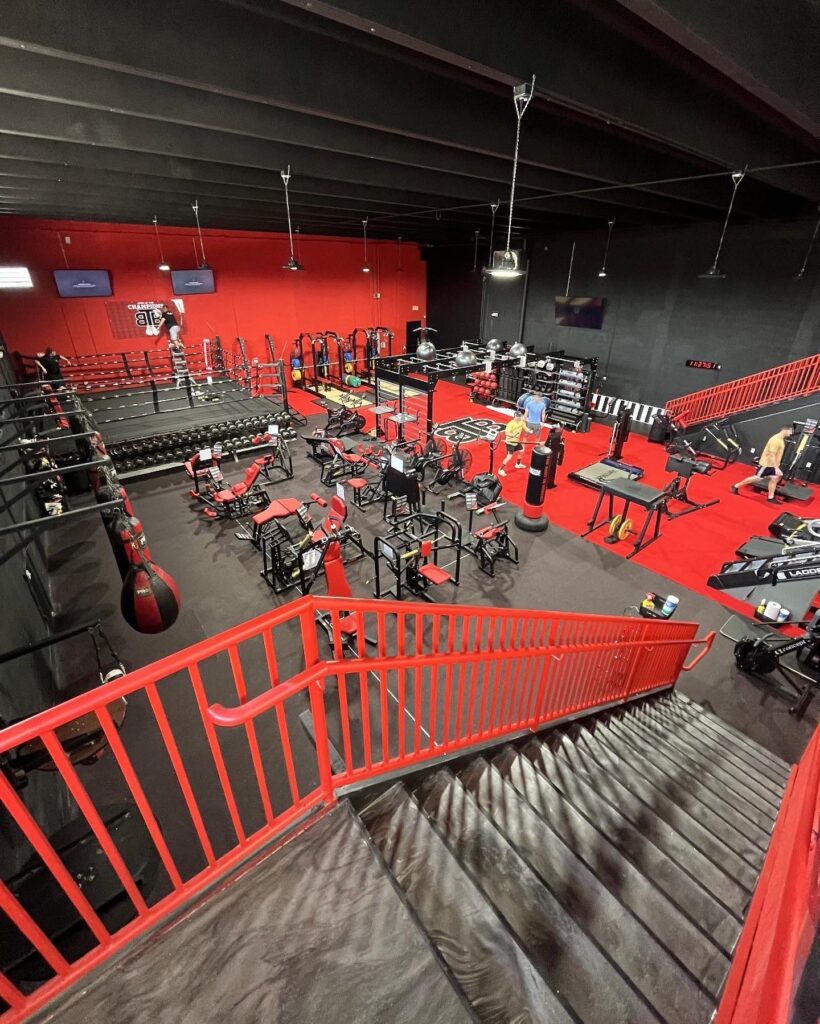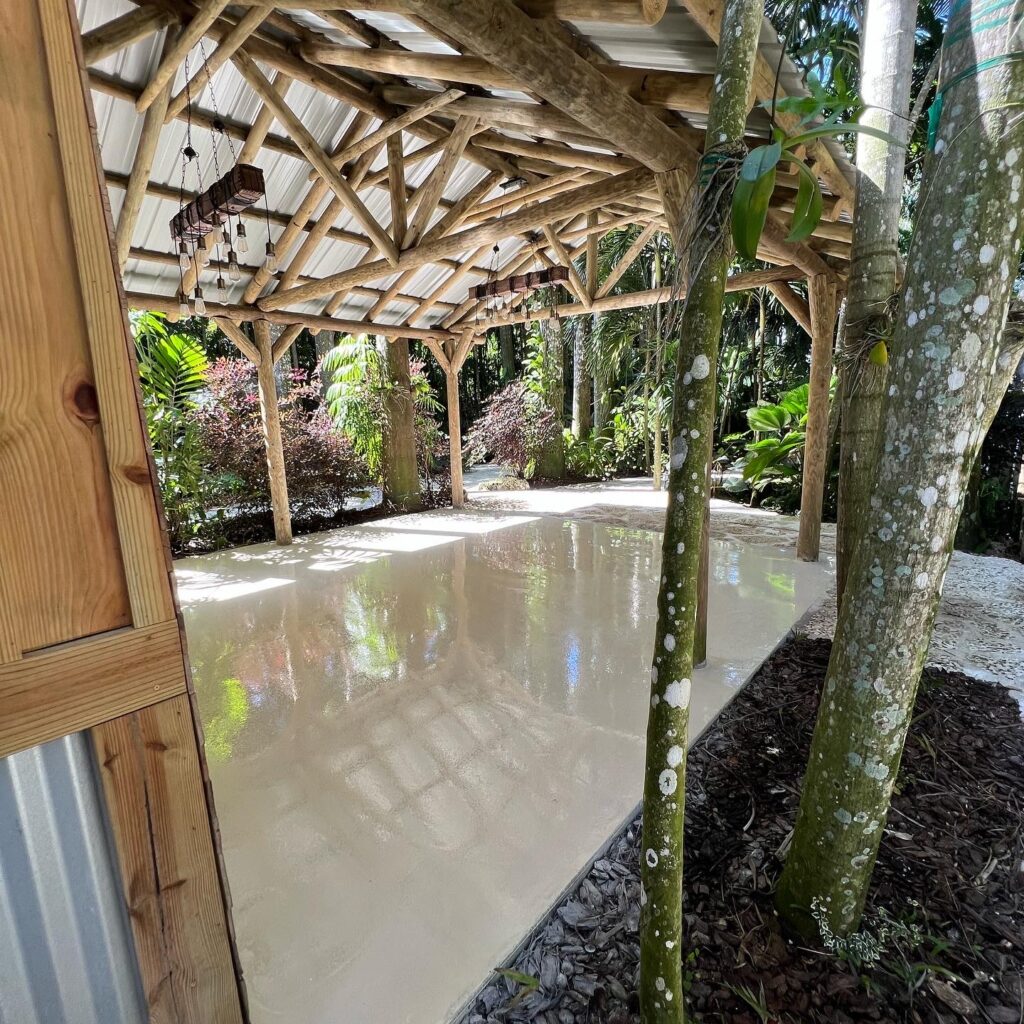Garage floors often bear the brunt of daily wear and tear—vehicle traffic, chemical spills, and heavy impacts. Yet, they’re one of the most overlooked areas of a home. Enter epoxy flooring, a solution that combines durability, beauty, and protection. From sleek standard finishes to dazzling metallic designs, epoxy offers endless customization to transform your garage into a space that’s both functional and visually stunning.
In this guide, we’ll dive into the costs, color options, and metallic finishes available for epoxy garage floors. We’ll compare standard and metallic epoxy, explore DIY vs. professional installations, and answer your most pressing questions about this premium flooring option.
Epoxy Garage Flooring Cost Breakdown
The cost of an epoxy garage floor depends on several factors, including the type of epoxy, the size of your garage, and whether you choose to DIY or hire a professional. Let’s break down the costs:
1. Cost by Epoxy Type
- Standard Epoxy Floor: $4–$8 per sq. ft.
- Basic colors and finishes, ideal for residential garages.
- Metallic Epoxy Floor: $7–$15 per sq. ft.
- High-end finishes with a 3D, marbled effect.
2. Cost by Installation Method
- DIY Installation: $2–$5 per sq. ft.
- Budget-friendly but requires skill to avoid bubbles and peeling.
- Professional Installation: $6–$15 per sq. ft.
- Higher upfront cost but guarantees a flawless finish.
3. Additional Cost Factors:
- Concrete Prep: Grinding or acid etching costs $1–$3 per sq. ft.
- Crack Repairs: $2–$4 per linear foot for filling cracks.
- Sealers and Topcoats: $0.50–$1 per sq. ft. for UV protection and added gloss.
Comparison Table: Standard vs. Metallic Epoxy Flooring
| Feature | Standard Epoxy Floor | Metallic Epoxy Floor |
| Durability | High | High, plus added aesthetic appeal |
| Finish | Solid colors, flakes | Swirl effects, pearlescent finish |
| Cost | $4–$8 per sq. ft. | $7–$15 per sq. ft. |
| Best For | Home garages, workshops | Luxury spaces, showrooms, high-end garages |
| Installation | DIY-friendly | Requires expert application |
| Aesthetic Appeal | Simple | Unique, high-gloss, 3D effects |
Exploring Garage Floor Epoxy Colors & Metallic Options
Popular Garage Epoxy Colors
Epoxy floors offer a wide range of colors and finishes, allowing homeowners to customize their garage to suit their style. Here are some popular options:
Solid Epoxy Colors:
Simple, sleek, and classic, solid colors are a top choice for modern garages. Popular shades include:
- Gray: Timeless and easy to maintain.
- Black: Bold and striking, ideal for luxury garages.
- White: Brightens the space and gives a clean, polished look.
Flake Epoxy Flooring:
Flake epoxy combines solid colors with multi-colored flakes, adding texture and slip resistance. Popular blends include:
- Granite: A mix of black, white, and gray.
- Saddle Tan: Earthy tones perfect for warm spaces.
- Blue Ice: Cool tones with flecks of blue and silver.
What is Metallic Epoxy?
Metallic epoxy is a premium flooring option that uses metallic pigments to create a shimmering, 3D effect that resembles marble, clouds, or even flowing lava. Each installation is unique, making metallic epoxy a popular choice for high-end spaces.
Top Metallic Epoxy Colors:
- Pearl White: Crisp, elegant, and modern.
- Cobalt Blue: Deep, rich, and vibrant.
- Silver Gray: Sleek and industrial.
- Bronze: Warm with an industrial edge.
DIY vs. Professional Epoxy Installation
DIY Epoxy Garage Floor:
For homeowners on a budget, DIY epoxy kits are an attractive option. However, the success of a DIY installation depends on proper surface preparation and technique.
Pros:
- Lower cost ($2–$5 per sq. ft.)
- Satisfaction of completing the project yourself
- Ideal for small or low-traffic garages
Cons:
- Risk of bubbles, peeling, and discoloration if applied incorrectly
- Shorter lifespan (3–5 years)
- Limited design options
Professional Epoxy Installation:
For a flawless finish and long-lasting durability, professional installation is highly recommended, especially for metallic epoxy floors.
Pros:
- Perfectly smooth, long-lasting finish
- Professional-grade materials and equipment
- Proper surface preparation (e.g., diamond grinding)
- Long lifespan (10–20 years)
Cons:
- Higher cost ($6–$15 per sq. ft.)
- Requires scheduling and project downtime (typically 2–3 days)
Pros and Cons of Epoxy Garage Floors
Advantages of Epoxy Floors:
- Exceptional Durability: Resists cracks, stains, and impacts.
- Low Maintenance: Easy to clean—oil and chemical spills wipe away effortlessly.
- Aesthetic Appeal: Wide range of finishes from solid colors to 3D metallic designs.
- Waterproof: Protects your garage floor from moisture damage.
- Long Lifespan: Properly installed epoxy can last up to 20 years.
Disadvantages of Epoxy Floors:
- Slippery When Wet: Can be addressed with anti-slip additives.
- Curing Time: Takes 24–72 hours to fully harden.
- Surface Preparation: Requires thorough cleaning and repairs before application.
- Yellowing: Cheaper epoxy can discolor under UV exposure.
Frequently Asked Questions :
Is it worth putting epoxy on a garage floor?
Yes! Epoxy flooring offers unmatched durability and aesthetic appeal. It protects your concrete from cracks, stains, and wear while transforming your garage into a polished, showroom-like space.
How long does garage epoxy last?
- Standard Epoxy: 5–10 years with regular use.
- Metallic Epoxy: 10–20 years with professional installation and proper maintenance.
What is the disadvantage of epoxy?
While epoxy is durable and long-lasting, it has a few downsides:
- Slipperiness: Especially when wet or oily.
- Surface Prep: Must be properly prepped to prevent peeling.
- Curing Time: Requires 24–72 hours to fully cure.
What kind of epoxy is used for garage floors?
The best types of epoxy for garages include:
- 100% Solid Epoxy: Thick, durable, and best for high-traffic areas.
- Water-Based Epoxy: Easier to apply but less durable than 100% solids.
- Metallic Epoxy: Offers a luxurious, high-gloss finish with a 3D effect.
Is the garage floor epoxy waterproof?
Yes. Once fully cured, epoxy forms a waterproof barrier that protects the underlying concrete from moisture, spills, and stains.
Maintaining Your Epoxy Garage Floor
Proper maintenance can extend the lifespan of your epoxy floor and keep it looking brand new:
- Daily Cleaning: Sweep or use a dust mop to remove debris.
- Weekly: Mop with warm water and a mild cleaner.
- Avoid Harsh Chemicals: Use pH-neutral cleaners to preserve the gloss.
- Spot Cleaning: Quickly clean oil or chemical spills to prevent staining.
- Reapply Topcoat: Every 3–5 years, apply a clear topcoat to maintain protection and shine.
Why Choose Metallic Epoxy for Your Garage?
Metallic epoxy offers several benefits beyond durability and protection:
- Unique Designs: No two metallic epoxy floors are identical.
- High-End Look: Provides a luxury, showroom-quality appearance.
- Increased Home Value: Adds a premium touch to your property.
- UV Resistance: High-quality metallic epoxies resist yellowing from sunlight.
Epoxy garage floors are the perfect blend of form and function. Whether you choose a standard epoxy finish for simplicity or metallic epoxy for luxury, your garage will benefit from increased durability, protection, and style.
Standard epoxy floors are practical and cost-effective for everyday use, while metallic epoxy offers a one-of-a-kind, premium finish perfect for showrooms and high-end homes.
DIY installation is suitable for those on a budget, but professional installation guarantees long-term results—especially for metallic finishes that require expert techniques.
With proper care, your epoxy garage floor will not only last for decades but also become a centerpiece of your home.



